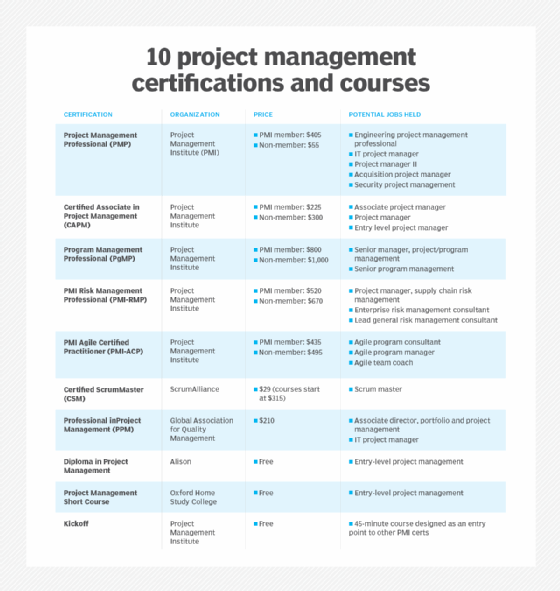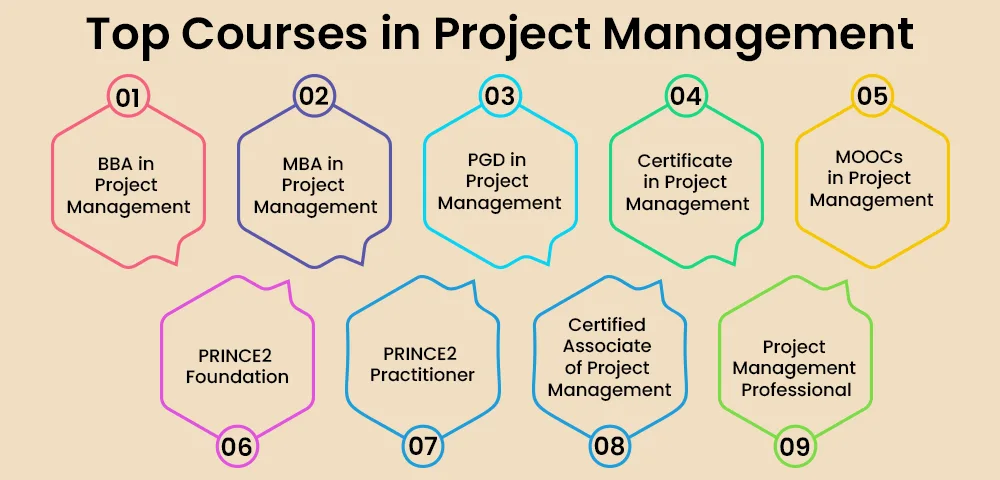My Journey from Chaos to Clarity: Why a Project Management Course Changed Everything
I remember a time, not so long ago, when my professional life felt like a perpetually tangled ball of yarn. Deadlines were missed, communication was a guessing game, and every "project" I touched seemed to expand into an unmanageable monster. I was passionate, sure, but passion without direction is just… well, chaos. My desk was a battlefield, my inbox an abyss, and my brain felt like a browser with a hundred tabs open, none of them fully loaded.
Sound familiar?
I was good at doing things, but terrible at organizing them. I could build a beautiful website, but getting it launched on time and within budget? That felt like trying to herd cats while juggling flaming torches. I knew I needed something, some kind of framework, a secret sauce that successful people seemed to have. That’s when I first heard whispers of "project management."
At first, it sounded like a stuffy, corporate buzzword. "Project Management Course," I thought, "is that even for me? I’m not building skyscrapers or launching rockets!" But the more I looked into it, the more I realized it wasn’t about the size of the project, but about the approach to getting anything done, big or small, with purpose and precision.
This wasn’t just a course; it was an intervention for my career.
Why I Finally Decided to Dive into a Project Management Course
My motivation was simple: I was tired of feeling overwhelmed. I wanted to feel in control, to deliver on promises, and to finally understand why some projects sailed smoothly while others sank without a trace. I wanted to move from reacting to planning.
Here’s what really pushed me to take the leap:
- The "Ship Without a Rudder" Feeling: My work often lacked clear direction. I’d start something, get distracted, and then scramble to finish. I needed a roadmap.
- Communication Breakdown: Information was always getting lost. Who was doing what? When? Why? I needed to learn how to keep everyone on the same page.
- Endless Rework: Oh, the endless revisions! Things were built, then torn down, then rebuilt because the initial vision wasn’t clear. This wasted so much time and energy.
- Career Stagnation: I felt like I was running in place. I knew I could do more, but I lacked the structured skills to take on bigger responsibilities. I saw others advancing, and often, they had "project management experience" listed prominently.
- Understanding the "Why": I didn’t just want to do tasks; I wanted to understand how my tasks fit into the bigger picture, and how to define that picture for others.
I started searching for "best project management course for beginners" and "online project management training." I read reviews, looked at syllabi, and mentally prepared myself for what I hoped would be a transformative experience.
What You’ll Actually Learn in a Project Management Course (and Why It Matters)
Let me tell you, it wasn’t just about memorizing terms. A good Project Management Course breaks down the entire process of getting things done into understandable, actionable steps. It’s like learning to conduct an orchestra instead of just playing one instrument.
Here’s a glimpse of what truly stuck with me, explained simply:
1. The Project Lifecycle: From Idea to "Done!"
This was a revelation. Projects aren’t just random acts; they have a distinct beginning, middle, and end. The course taught me about:
- Initiation: How to properly kick off a project. This means defining what exactly needs to be done, why it’s important, and who the key players are. No more fuzzy starts!
- Planning: This is where the magic happens. You learn how to break down the big goal into smaller tasks, assign responsibilities, create realistic timelines (Gantt charts became my new best friend!), and figure out the budget. This is about answering: how, when, who, and how much.
- Execution: Putting the plan into action. This involves managing the team, delegating tasks, and keeping things moving.
- Monitoring & Controlling: Staying on track. You learn to spot problems early, manage changes, and keep an eye on budget and schedule. It’s like having a dashboard for your project.
- Closing: Finishing strong. This means formally handing over the results, getting sign-offs, and learning lessons for future projects. No more projects just fizzling out!
2. Beyond the Theory: Practical Skills You’ll Actually Use
A Project Management Course doesn’t just teach you the steps; it equips you with tools and techniques that are incredibly useful in any job, or even in your personal life.
- Risk Management: This was huge! Instead of being surprised by problems, you learn to anticipate them and plan how to deal with them. "What could go wrong, and what’s our backup plan?" became a regular question.
- Stakeholder Management: Understanding who cares about your project (and why) is critical. You learn how to communicate with different people – your boss, your team, your clients – effectively, keeping everyone informed and happy.
- Budgeting & Resource Allocation: How to make the most of what you have, whether it’s money, people, or time.
- Communication Strategies: This isn’t just sending emails. It’s about active listening, clear reporting, and building consensus. My meetings became so much more productive!
- Leadership & Team Management: Even if you’re not a formal manager, you learn how to motivate people, resolve conflicts, and guide a team towards a common goal. This is invaluable.
- Problem-Solving: You develop a structured way to approach challenges, rather than just reacting impulsively.
And yes, you’ll likely encounter terms like "Agile," "Scrum," and maybe even "PMP certification" (Project Management Professional) or "CAPM" (Certified Associate in Project Management). Don’t let these scare you! A good beginner-friendly Project Management Course will introduce these concepts in an accessible way, showing you how they fit into the bigger picture of getting things done efficiently.
My Personal Transformation: Life After the Course
Fast forward a few months, and the change was remarkable. My desk wasn’t just tidier; my mind was tidier.
- Confidence Soared: I no longer dreaded starting new initiatives. I had a playbook, a set of tools, and the confidence to lead.
- Projects Actually Finished: On time! Within budget! With happy stakeholders! It felt like a superpower.
- Better Communication: My team members knew what was expected of them, and I knew what they were working on. Fewer misunderstandings, more collaboration.
- Career Growth: Opportunities that once seemed out of reach started to appear. I was entrusted with more significant projects, and my contributions were recognized. My resume suddenly had concrete skills to back up my experience.
- Reduced Stress: Honestly, this was one of the biggest wins. Knowing how to plan, anticipate, and manage significantly reduced my daily stress levels.
The Project Management Course didn’t just teach me how to manage projects; it taught me how to manage my work life with intention and strategy.
Is a Project Management Course Right for You?
If you’ve read this far and found yourself nodding along, chances are, the answer is a resounding "yes."
This kind of training is incredibly valuable for:
- Aspiring Project Managers: This is your foundational step!
- Team Leads or Supervisors: Learn to guide your team effectively and deliver results.
- Entrepreneurs and Small Business Owners: You are the project manager for everything you do. Get the skills to do it right.
- Anyone Feeling Overwhelmed by Tasks: If you juggle multiple responsibilities and wish you had a better system, this is for you.
- People Looking for Career Advancement: Project management skills are in high demand across almost every industry.
- Those Seeking Certification: Many courses prepare you for industry-recognized certifications like PMP or CAPM, which can significantly boost your career prospects.
It’s about more than just a job title; it’s about a mindset and a skillset that makes you more effective, more organized, and more capable in any professional setting.
Choosing Your Project Management Course: A Few Tips
If you’re ready to take the plunge, here’s some friendly advice based on my experience:
- Look for Beginner-Friendly Options: Don’t jump straight into advanced certifications if you’re new. Find a course that introduces concepts clearly and practically.
- Check for Practical Application: Does the course include case studies, exercises, or real-world examples? Learning by doing is key.
- Instructor Experience Matters: Look for instructors who have actual, hands-on project management experience, not just theoretical knowledge.
- Consider the Format: Online courses offer flexibility, while in-person classes might offer more direct interaction. Choose what suits your learning style and schedule.
- Read Reviews: See what other students have to say about the course content, instructors, and overall experience.
- Accreditation/Certification Prep: If a certification like PMP or CAPM is your long-term goal, make sure the course prepares you for the exam.
Ready to Turn Your Chaos into Clarity?
Taking that Project Management Course was one of the best decisions I ever made for my career. It didn’t just give me a set of tools; it gave me a new way of thinking, a renewed sense of purpose, and the ability to turn ambitious ideas into tangible realities.
If you’re tired of the tangled yarn and ready to weave something truly impactful, I encourage you to explore the world of project management. It might just be the secret sauce you’ve been looking for. Your future organized, successful self will thank you.



